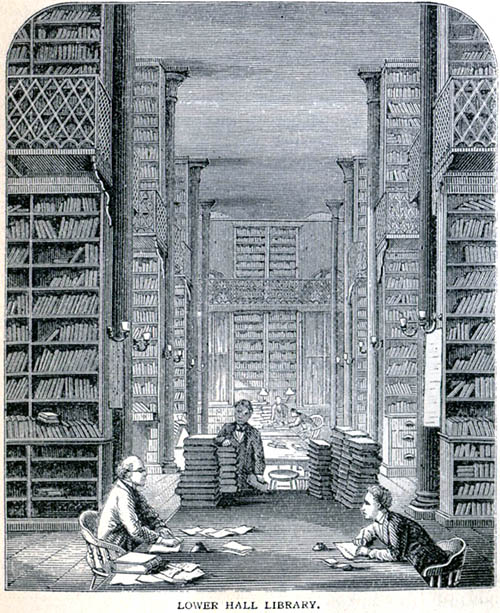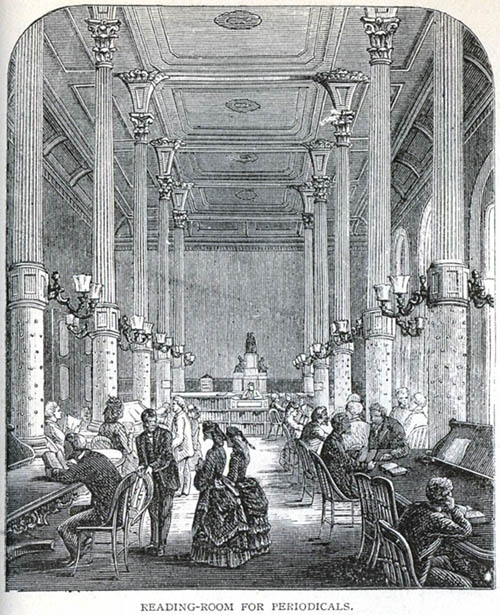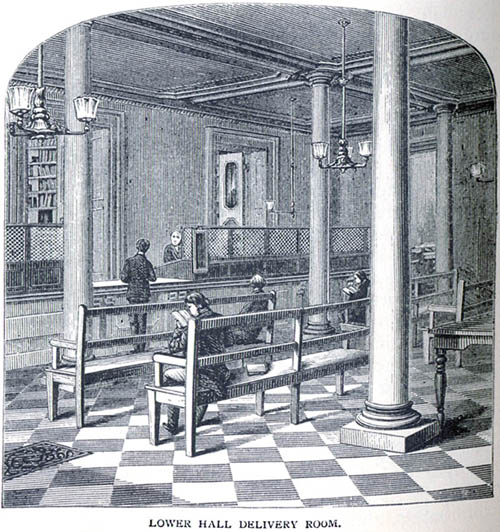Who's in Charge?
Today, we take the bit on our teeth. The University of Houston's College of Engineering presents this series about the machines that make our civilization run, and the people whose ingenuity created them.
America gave birth to the public lending library in the mid-19th century. Now an 1871 Scribner's Monthly article about the Boston Public Library reveals its labor pains. Boston's library, heavily underwritten by private donors, was being managed by bibliophiles. And they had to turn books loose among the general public, even though doing so violated every fiber of their thinking.
Scribner's didn't list author's names, but this one is pretty self-revealing. He (or she) demands to be seen as intellectual -- ten-dollar words and ornate sentences. He's sure that lending books must be a tougher problem for the New York Library with its more heterogeneous public. Here in Boston, many users are low class, but they are Bostonian. Still, the library has a very aggressive system for hunting down overdue book holders.
The biggest question the author faces is choosing what books the library should offer. And here rises an old power struggle between library owners -- that is you and me -- and library managers. Should the library give the public what it wants or give them what's good for them? Shouldn't librarians be best qualified to say what, and how, users should read?
But the public, so often wrong in the short term, is always wiser than the experts in the long run. And the writer catches on grudgingly. He says that the public taste in fiction is low. But if we try to decide for the public, they will simply not use our library. He painfully concedes that starting out with cheap novels will put people on the road to better books. And he allows that, to read important books, even superior people need peace and quiet that the lower classes don't have.
This was a new America where we all had access to grade school and very few had access to college. This was an America that would own books in common and would learn from them as no other people ever had. Yet, as we trace this quaint attempt to assert the superiority of those who managed our books, we want to weep. These are fundamentally good people looking after the well-being of us all. But they're consumed by their longing for high status.
Of course the public wore them down, showed them the way, made it clear what a library should and should not be. The author makes another observation, so astute and so half-blind. Here in America, we are already better read than in Britain, he allows -- even though the highest culture is still to be found back there.
And so, while he thought about status, public library users were busy shifting the centers of thought-driven action far beyond his understanding. Every kind of book -- dime novels and Charles Dickens -- applied mechanics and treatises on astronomy. Words flowed. And printed words were molding a people far faster than any self-appointed keepers of the flame would ever again control.
I'm John Lienhard at the University of Houston, where we're interested in the way inventive minds work.
The Boston Public Library. Scribner's Monthly Magazine, Vol. 2, pp. 150-156. (No author named.) The three images of life in the Boston Library (below) are from this source.


